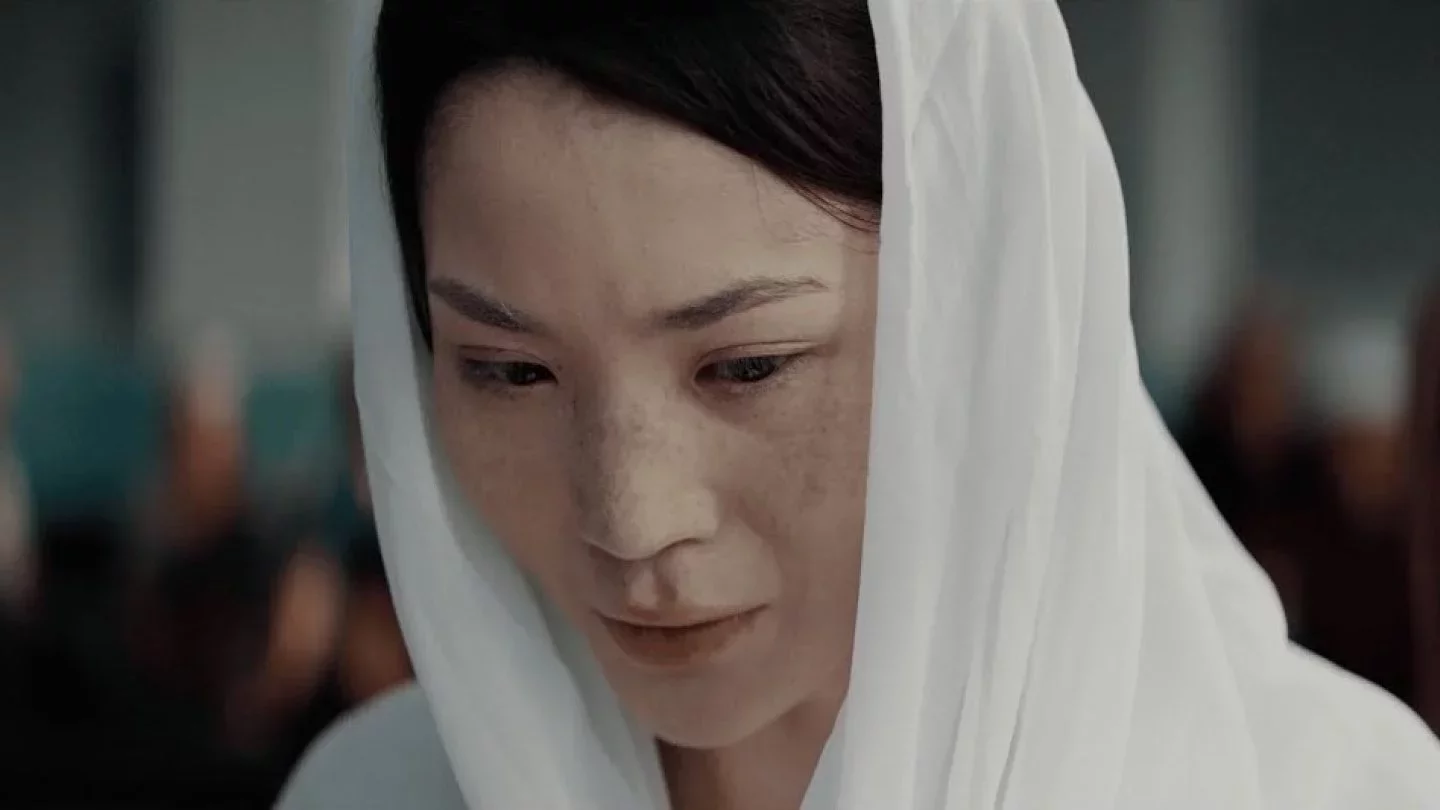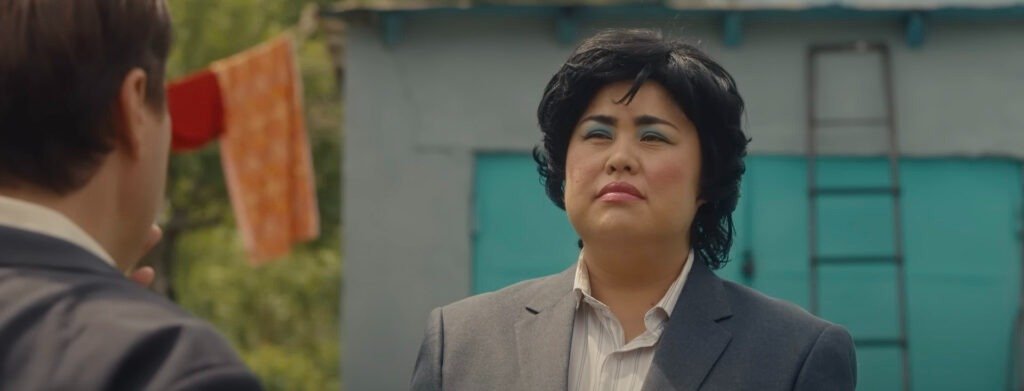Abusing Women: How Violence Became a Trend in Kazakhstan’s Cinema
 Cover shot: film - “Dastur\"
Cover shot: film - “Dastur\"
The beginning of 2024 will go down in the history of Kazakhstani cinema. For the first time,1 billion tenge box office receipts were recorded not for a comedy but for a drama. The box office success of the horror “Dastur" (Tradition in Kazakh - Ed.) by Kuanysh Beisek seemingly drowned out another picture that became a local sensation – the comedy "Taptym-au seni”(I Found You in Kazakh - Ed.). The latter's box office results have already exceeded 1.5 billion tenge. It would seem that the films are a stark contrast in meaning, content, and presentation. Yet, this is a superficial assumption.
Violence = Fun?
November and the first half of December turned out to be extremely tense in Kazakhstan. One could not but notice consistent news about sexual assault and abuse. The horrific story of Saltanat Nukenova’s death shook even those adhering to the principle of “it is no concern of mine." There were still individuals like blogger Yerzhan Rashev and journalist Mikhail Kozachkov, who chimed in with arguments that “Fellas have a hard time going through divorces" or unsupported claims that the victim walked naked around the restaurant before her death.
Two weeks after the high-profile homicide, the film "Taptym-au seni" by producer and actress Dariga Badykova was released.
I have previously written about how the comedy "Kelinka Sabina" with an age rating of "6+" has justified violent acts against women. In "Taptym-au seni" we see the same pastoral setting: a picturesque village in which the overaged simpleton Zhexen and his masculine friend Saule live. The catalyst for the main plot is the sudden realization of the imminent death of Zhexen's grandmother, who has yet to go to her grandson's wedding. Thus, the main characters set out in search of a bride.

They decide to kidnap a fellow villager. Their idea is familiar: bag over her head, putting her in a motorcycle, and bringing her to the groom’s house. The plan works perfectly until the "bride" falls out before arriving at the house and rolls along the road straight to the grandma’s feet. This striking scene is in the trailer.
The banged-up girl removes the bag and says that she cannot marry Zhexen. As it turns out, she is already married and is his distant relative. Saule and Zhexen are taken to a local station, where a very important character for the story appears – a policewoman. She says the right things: a woman is not a thing that can be stolen, such a medieval approach is unacceptable. The film’s writers, however, depict her as a hysterical woman who destroys furniture and…releases both criminals immediately after their parents come for them, informing them that they have hashed everything out with the kidnapped girl.

Here is the first point of contact with "Dastur". The law in Kazakhstan is powerless before "Reconciliation of Parties”. In Kuanysh Beisek's film, Aldiyar Zhaparkhan’s character turns out to be the same helpless policeman. No harm, no foul.
Throughout the story, Saule, played by Dariga Badykova, repeatedly encounters being assaulted or assaults someone. The film’s finale - a mass brawl.
On the one hand, it isn't easy to criticize Badykova or the director of Taptym-au Seni, Anvar Matzhanov. They couldn't have known that Saltanat Nukenova would be killed before their film’s premiere. Just like most domestic comedies, "Taptym-au seni" reflects the peculiarities of the Kazakhstanis’ attitude towards matters concerning violence.
A woman in Kazakhstan can be kidnapped, beaten, or dropped from a vehicle at full speed. The law will turn a blind eye to this, while a million viewers will watch a movie, laugh, and be convinced that violence is “fun”.
Violence = Scary!
Until 2023, non-comedic cinema audiences avoided the topic of domestic or sexualized violence. The audience and producers would go on speaking about an already difficult life and the need for positivity.
Although the film "Dastur" became a breakthrough project in this regard, it is hard to dub it as a first. In February of last year, despite its limited release, the drama "Bakyt" by producer Bayan Alaguzova and director Askar Uzabayev was able to rake in over 150 million tenge in cinemas.
In the autumn, Berik Zhakhanov’s TV series about the trafficking of young girls for sexual exploitation “Captives“ (Золожники - Ed.) was broadcast on the KTK TV channel and later available on the Kinopoisk platform. The first episodes get off on the right foot. However, after watching all 16 episodes, several questions arose about this Bas Production project regarding both the artistic and semantic content.
Indeed, the victims’ thoughts such as "How could I be such a fool?" or the remark of the main character, "She's someone's daughter or sister" instead of "She's a human being” stand out.

The box office successes of "Bakyt" and "Dastur", as well as the rating of "Captives", seem to indicate that Kazakhstani viewers are ready to shift the focus from comedy to more complex topics. This opinion can be supported in the coming year by the action dramas "They Promised You to Me” by producer Gulnara Sarsenova, director Ivan Oganesov, and “Zhaza” by producer Maxim Akbarov, director Darkhan Tulegenov.
Not being an idealist, I still hope that such projects can serve to prevent violence in the country and that there will be less news in the spirit of "Rahat Turlykhanov abused his wife again”.
Original Author: Karim Kadyrbayev
DISCLAIMER: This is a translated piece. The text has been modified, the content is the same. Please refer to the original piece in Russian for accuracy.
Latest news
- Oil Smuggling Trial Begins in Aqtau Over Seized Tanker
- Armenian Foreign Ministry Open to Outsourcing Transport Corridor Oversight
- A Second Kazakhstan-Born Individual Convicted of Treason in Russia This Month
- National Fund Council: Toqayev Receives Tie-Breaking Vote Power
- Kazakhstani Caught With Fake Passport in Bulgaria Fears Extradition
- Rubio and Lavrov Hold Talks at ASEAN Summit Amid Escalation in Ukraine
- Asset Recovery: Price on De Beers Earrings Cut by 23 Million Tenge
- Pashinyan and Aliyev Discuss Normalization Efforts in Abu Dhabi
- What Will Be Considered Stalking? The Ministry of Justice Explains
- Kazakhstan Prepared to Build Karachaganak Gas Plant With Alternative Contractor if Needed
- Former Russian Orthodox Priest Launches Petition for Constantinople Church Presence in Kazakhstan
- Asset Recovery and Management Company Launches New Auction for Land in Nazarbayev’s Hometown
- Olzhas Bektenov Discusses Digital Innovation and Travel Safety with Yandex Qazaqstan
- Man Detained over Attempted Arson at House of Ministries Entrance
- Producer Says Zemfira Concert Canceled Due to Poor Planning
- Kazakhstan's Energy Minister Comments on Russia–China Gas Pipeline via Kazakhstan
- UN Working Group Says Gulnara Karimova Was Arbitrarily Detained, Uzbekistan Responds
- Perizat Kairat Claims Abuse in Detention
- U.S. Senate Considers Julie Stufft for Ambassador to Kazakhstan
- Leviathan vs. Orda: Gulnara Bazhkenova Speaks Out on Efforts to Seize Her Media and Threats to Her Life

